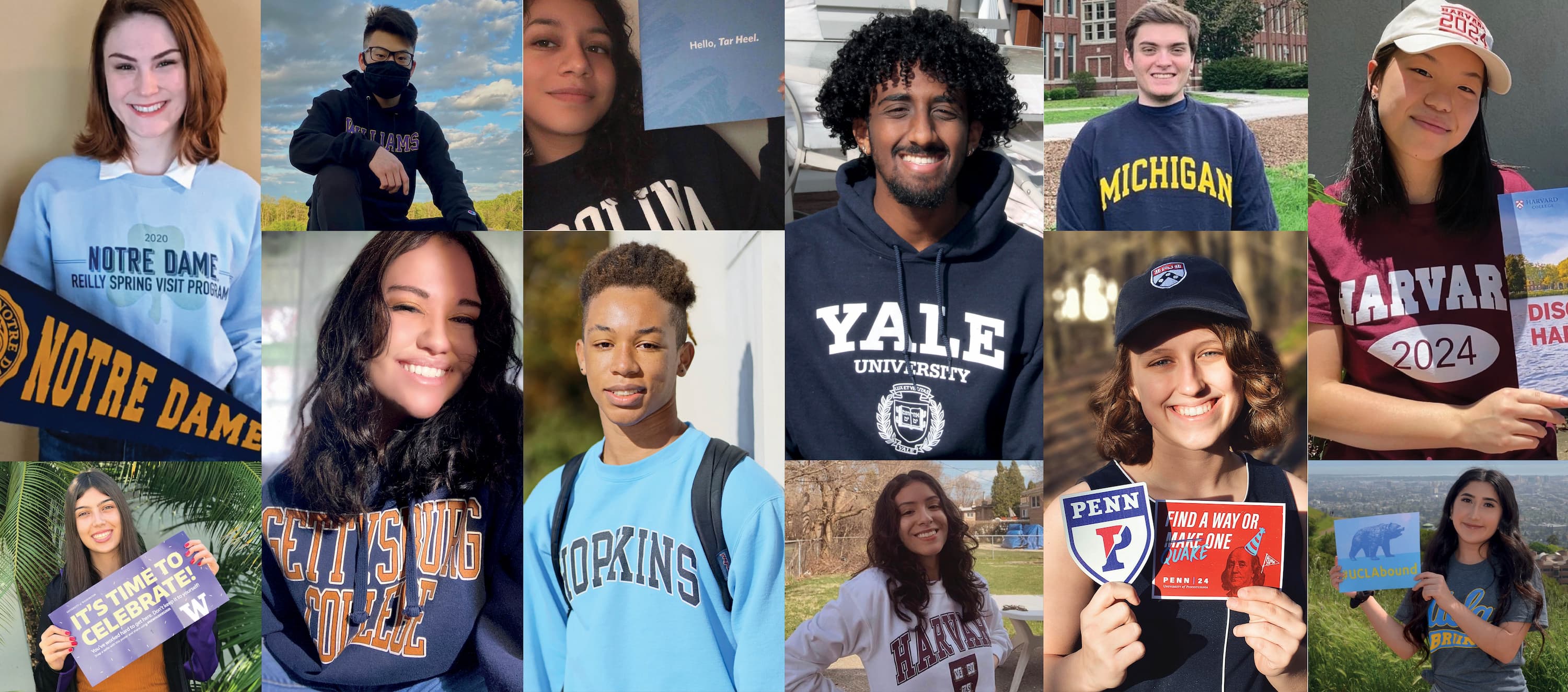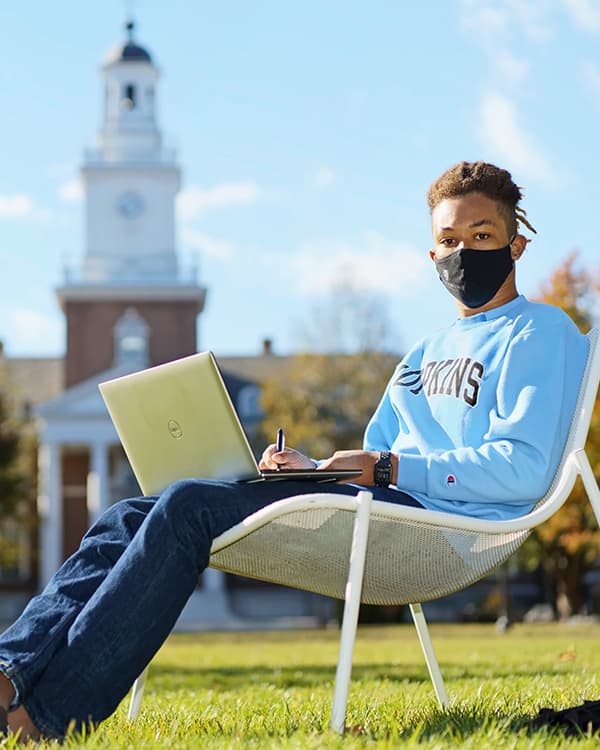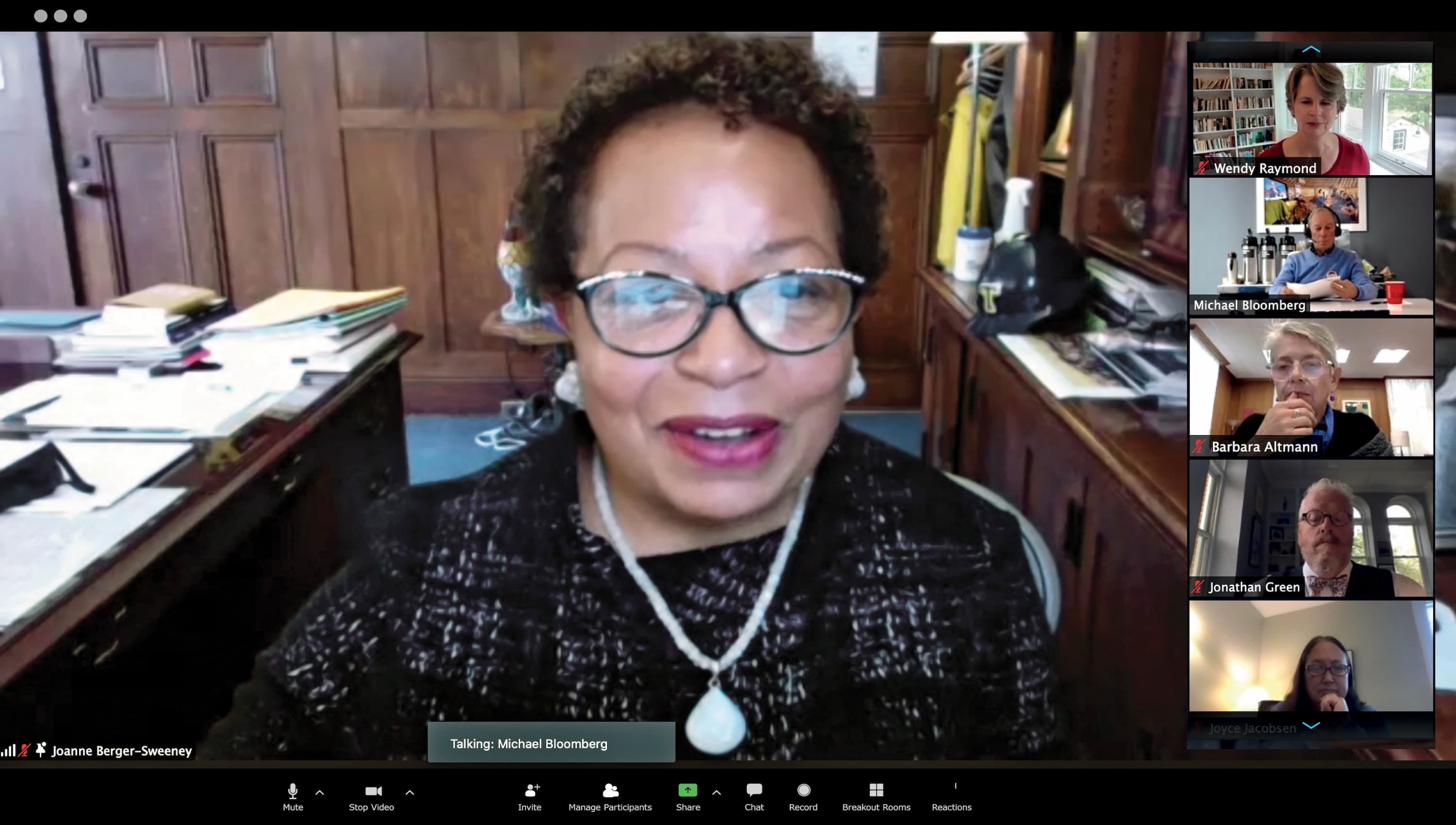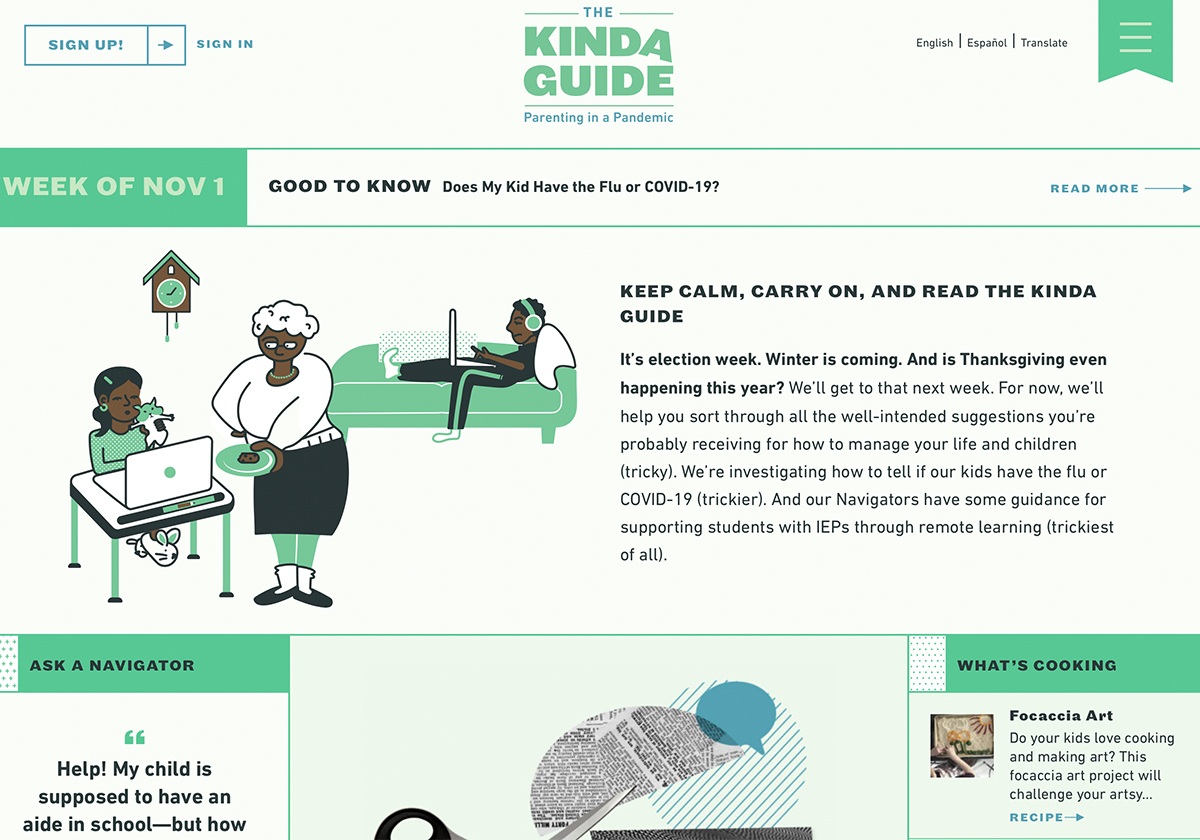Supporting Student Success
Education
“For far too long, zip code and skin color have determined a child’s education. That is wrong – tragically wrong. And I believe fixing it must be a top priority for our country.”
Mike Bloomberg
CollegePoint
CollegePoint provides virtual college advising to help students successfully transition from high school to college. Every year, tens of thousands of talented students from low- and middle-income families do not apply to leading colleges or universities that they are qualified to attend. The reason: Students often lack access to the right information and guidance to navigate what can be a complex application process. CollegePoint, with the expertise of partners including the College Board and ACT, helps students apply to and enroll in top schools. It especially benefits first-generation students who sign up for the program in their junior year.
More than 70,000 students advised by CollegePoint since 2014
CollegePoint advisors reach students through phone, text, and email and assist them throughout the end of their junior and senior years as they complete applications for both admission and financial aid. So far, CollegePoint has provided virtual college advising to over 70,000 students — free of cost.
CollegePoint Solutions
Virtual advising made the CollegePoint program not only sustainable, but also effective throughout 2020. Here is what CollegePoint advisors delivered this past year to students across different high school graduating classes:
• Class of 2020: More intensive summer advising was provided to ensure students ultimately enrolled in and attended college in the fall, despite disruptions.
• Class of 2021: More than 7,600 students (and counting) are enrolled and working with 800 advisors — along with new support for laptops and Internet hotspots, so that students can connect with advisors and complete applications while away from technology resources at their high schools.
How CollegePoint Extended Support for the Class of 2021
Student Profiles: CollegePoint helped match Gina and Logan with their dream schools.
CollegePoint was well-positioned to scale up during the pandemic and provide extra guidance to students during a time of heightened uncertainty. The program worked with key partners College Advising Corps, College Possible, ScholarMatch, and Matriculate to add advisors and provide two additional months of services to more than 8,700 students.
“CollegePoint gave me someone who had been through the same application process I had…and succeeded. Having a mentor helped me realize that my goals were attainable and kept me focused.”
Jay Lawrence
Johns Hopkins University
“CollegePoint gave me someone who had been through the same application process I had…and succeeded. Having a mentor helped me realize that my goals were attainable and kept me focused.”
Jay Lawrence
Johns Hopkins University
American Talent Initiative
The mission of the American Talent Initiative became even more urgent as students, families, and institutions alike navigated both an unprecedented school year and the economic pressures of the pandemic. The initiative is a coalition of top colleges and universities working together to expand college access and opportunity. Its goal is to recruit, enroll, and graduate 50,000 additional talented students from lower-income families by 2025. This effort is a Bloomberg Philanthropies–supported collaboration between the Aspen Institute and Ithaka S+R.
130+ colleges and universities working together to expand access to their institutions
To date, over 130 colleges and universities — including state flagship universities, small liberal arts colleges, and the entire Ivy League — have joined the American Talent Initiative. A 2020 report shows that participating colleges have increased enrollment of students who receive Federal Pell Grants by more than 12,000 since 2016.
Helping N.Y.C. High Schoolers Transition to College
College Bridge
Studies show that even in the best of times, as many as 40 percent of low-income students accepted to college can experience challenges that prevent them from matriculating. In 2020, COVID-19 threatened to send that percentage even higher. Bloomberg Philanthropies responded by increasing its support for College Bridge, a program that helps New York City public high schoolers make a successful transition to college. This support increased the number of trained, paid City University of New York (CUNY) students who served as college coaches for graduating seniors over the summer. The program reached nearly 40,000 students from over 300 high schools, and initial data show nearly 70 percent of the participating students enrolled in college, breaking previous program records.
Going Virtual in the U.K.
The Sutton Trust
In the United Kingdom, the pandemic prevented most in-person university access programs from taking place. Building on the success of CollegePoint, Bloomberg L.P. and the Sutton Trust launched a new online platform called Sutton Trust Online to support over 6,000 students from lower-income families with their university choices and applications. The new platform incorporated all the features of the Trust’s flagship program, including advice and guidance on applications and student finance. Engineers and product developers from Bloomberg L.P. advised on the launch of the platform, and employee volunteers participated in a range of virtual mentoring and networking activities.
COVID-19 is having seismic and lasting impacts on K–12 education. Millions of students across the United States are learning in remote or hybrid environments, with many families facing ongoing financial hardship and child care challenges. In many cases, this only exacerbates existing disparities.
Mike Bloomberg has a long history of supporting education reform throughout the United States. He personally backs proreform public officials who work to enact meaningful policy changes that ensure accountability and high standards in schools. This work is grounded in the belief that the solutions required to improve education need broad coalitions that put students’ interests first.
To measure progress, this effort focuses on increasing high school graduation and college enrollment rates as well as improving academic achievement. The work has been focused in states like Tennessee and Louisiana, cities like Washington, D.C., and Indianapolis, Indiana, and other communities across the country.
During this unprecedented time, Mike’s support has helped launch a COVID-19 re-entry planning tool for districts to help guide school reopening; supported 50 virtual conversations with 2,200 participants from educational organizations across the country covering student needs, federal stimulus, and state budget decisions; and launched a free, virtual summer camp for 42,000 families nationwide, called Camp Kinda, which morphed into a daily guide full of resources to support weary parents in fall 2020.
Bloomberg Philanthropies invests in efforts across the country to improve skills- and jobs-based training in high schools. By participating in innovative apprenticeship programs and industry-specific skills training in high school, students are gaining greater access to middle- and highskilled 21st-century jobs. Central to this approach are partnerships among local industries, schools, and postsecondary institutions, which create opportunities for students to develop skills that will lead to careers with many opportunities. These promising models are backed by strong local leadership and support from a variety of industries, leading the way for other cities to adopt proven strategies.
For example, through locally led programs in Colorado and New Orleans, hundreds of students have completed internships or apprenticeships in fields such as insurance, information technology, and advanced manufacturing. Additionally, programs in Baltimore and Delaware work with local employers to train high school students and assist recent graduates in gaining skills and credentials for jobs, including in computer coding and medical office and research work.
Learning to Work Remotely
Across Colorado, high school apprentices are working with local businesses and gaining skills, credentials, and college credits to prepare for well-paying, skilled jobs thanks to Bloomberg Philanthropies’ partner CareerWise. Despite the pandemic, students continued to gain valuable work experience, with almost half shifting to remote work.
My Best Work from Home Advice:
“It is crucial to keep yourself on a schedule and to structure your day as if you were going into the office. This is important because when you work from home, you act as your own manager in a way, it’s essential to know how to prioritize and stay on track while not in the office.”
Victoria Long
CareerWise project management apprentice on the finance team at Arrow Electronics in Denver, Colorado
Top photo: Harvard freshman, and CollegePoint alumna, Penelope Alegria catches up on her work on the lawn in Harvard Yard.






